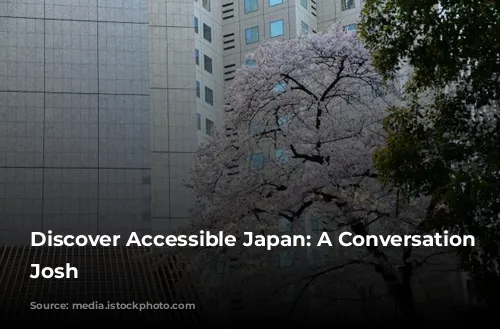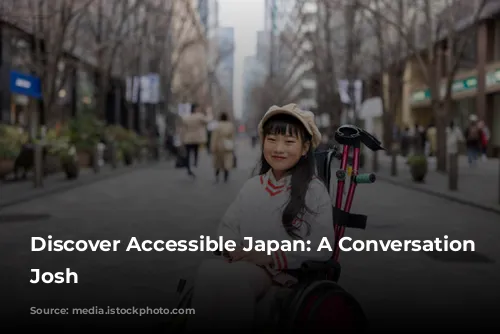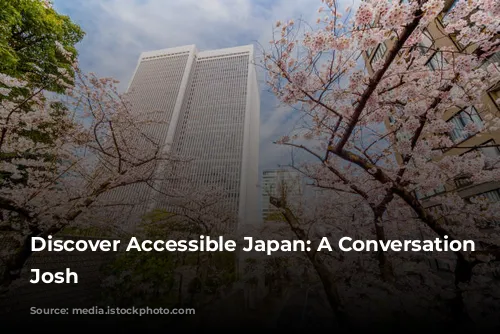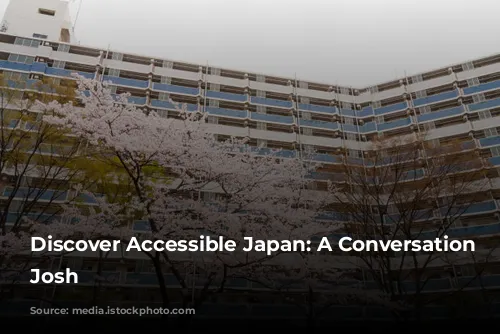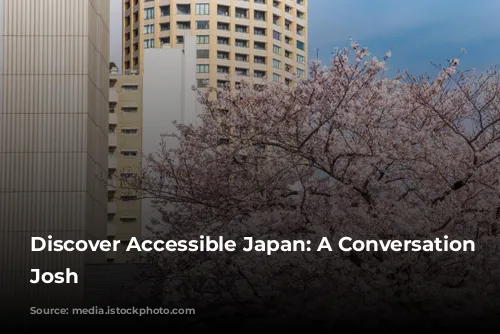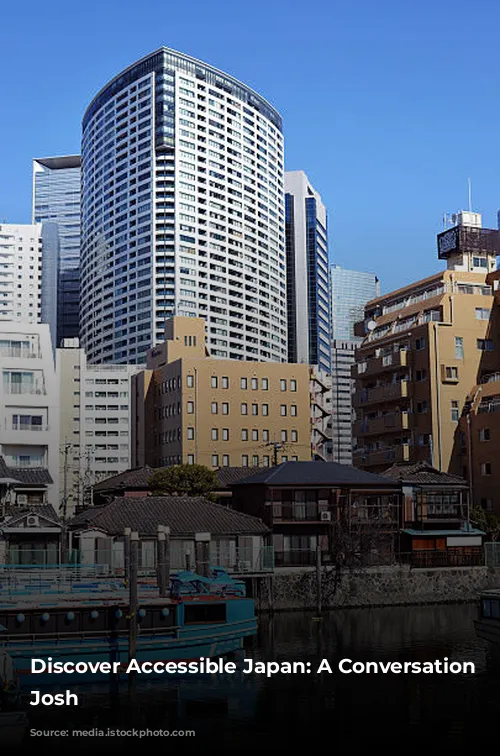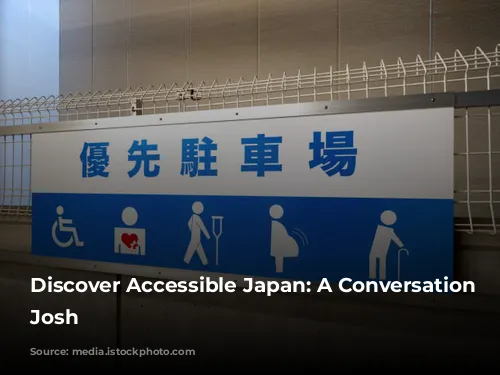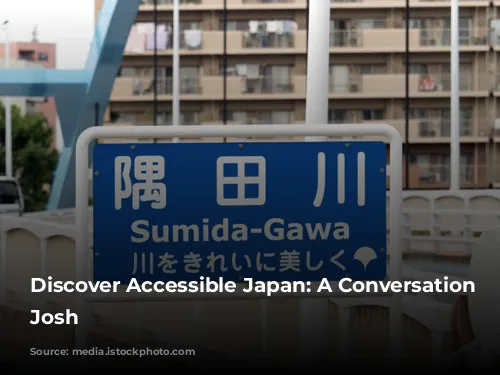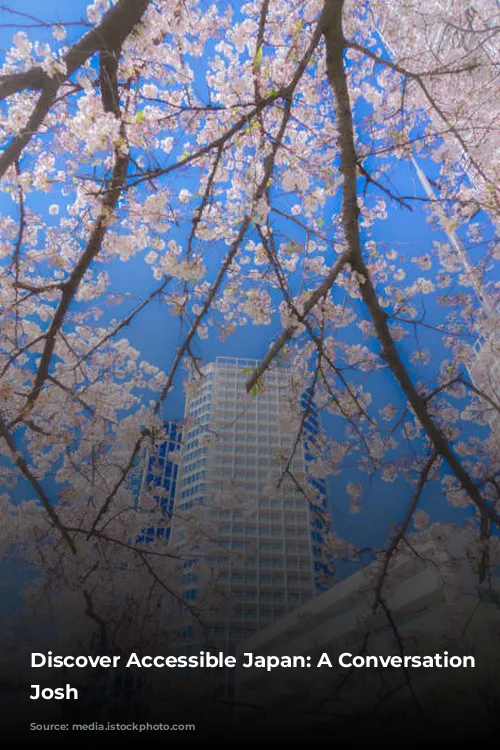Welcome to our blog, where we explore all things Japan! Today, we’re diving deep into a topic that’s close to our hearts: accessible travel. We’re excited to chat with Josh from Accessible Japan, a website packed with vital information for disabled travelers seeking to experience the Land of the Rising Sun.
Let’s get to know Josh!
What’s your story, Josh? How did you become a resident of Japan?
Originally from near Toronto, Canada, my love affair with Japan started in 2000 with my first visit. I fell in love with the country and became a frequent visitor. Fast forward to 2007, and I made Tokyo my home! In 2016, I became a Japanese citizen. I currently work in marketing for a Japanese company. I use a power wheelchair due to cerebral palsy, and my desire to share accessible travel experiences led me to create Accessible Japan.
Accessible Japan is an amazing resource! What inspired you to create it?
Honestly, I was looking for the kind of guide I wished existed when I first explored Japan back in 2000. At that time, accessibility information was scarce – limited to throwaway comments like, “Japan would be difficult for disabled travelers.”
Fast forward to 2015, when I launched Accessible Japan. Sadly, not much had changed, and countless travelers were missing out on the beauty of this country. I knew I had to do something. Accessible Japan was born with a mission to show the world that Japan is an accessible travel destination and to equip disabled travelers with the tools they need to plan their trips confidently.
Is Japan truly accessible for people with disabilities?
It’s more accessible than many might think! Social media often portrays a Japan of crowded trains, cramped eateries, and moss-covered steps leading to ancient temples. This might make wheelchair users think Japan isn’t for them. While those places exist, they only tell part of the story. Japan offers so much more, and a good portion of it is accessible.
Japan’s trains are renowned for their punctuality, and a high percentage of stations are accessible, surpassing even cities like Paris, London, and New York. Tourist attractions are rapidly adding ramps and accessible restrooms.
Of course, challenges remain. There’s a need for more accessible hotel rooms, detailed accessibility information, and easier access to shops and restaurants. But that’s true for any destination – there are both positives and negatives.
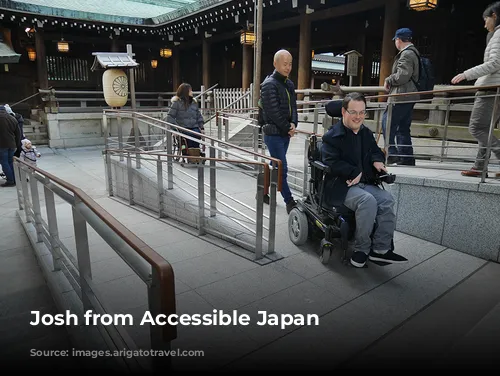
Navigating the Stairs: A Wheelchair User’s Perspective
Tokyo is famous for its stairs! How much of an obstacle are they for wheelchair users, and how much does this hinder visitors?
Yes, Tokyo has lots of stairs, but thankfully, there are also many elevators – although sometimes they can be hard to find. The biggest challenge isn’t just the stairs, but the steps. For someone in a heavy power wheelchair like mine, one or two steps are as challenging as a long flight of stairs – they completely block my path.
Small shops and restaurants often have a step at the entrance, and many restaurants (particularly traditional Japanese ones) and inns have a genkan, a step inside the building. This can be frustrating for travelers eager to experience Japanese culture firsthand. Imagine flying thousands of miles for authentic washoku (Japanese cuisine) and a relaxing onsen (hot spring) only to find you can’t enjoy them because of a step!
Thankfully, things are improving as awareness grows, but I encourage visitors and tour guides alike to suggest to business owners that a simple portable ramp could open their doors to more customers. They are incredibly affordable – you can find them on Amazon! [link to Amazon]
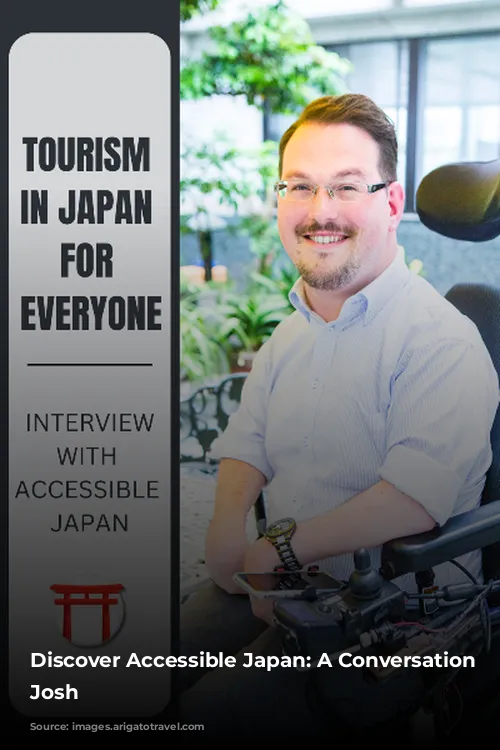
The Journey to Tokyo: A Personal Story
How did you gather all the information on Accessible Japan? What was it like moving to Japan and figuring out how to navigate it with a disability?
Most of the information, like the attractions and general information sections, comes from my own experiences traveling across Japan. Other sections, like hotels and tours, are based on web searches and collaborations with friends like Arigato Japan.
Moving here required a lot of research and support from friends already living in Japan. There were certainly challenges – finding accessible housing, arranging personal care attendants, navigating city hall, and dealing with a mountain of paperwork! But it was all worth it, and I consider Tokyo my home now.
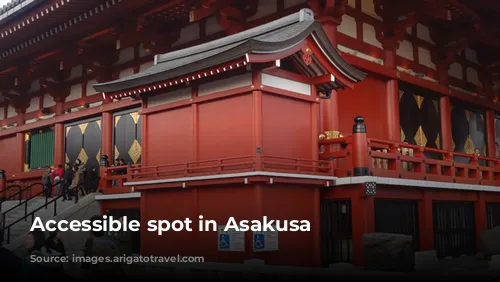
Tokyo’s Transforming Landscape: New Developments for Accessibility
Have you noticed any significant changes in Tokyo’s accessibility since you moved there?
Overall, accessibility has been steadily improving through government regulations and societal shifts. Remember, seniors also need the same accessibility features as disabled people! The Tokyo 2020/2021 Olympics and Paralympics played a major role in accelerating these changes. Despite the challenges of hosting the games, they sparked significant progress in accessibility and awareness of disabled individuals.
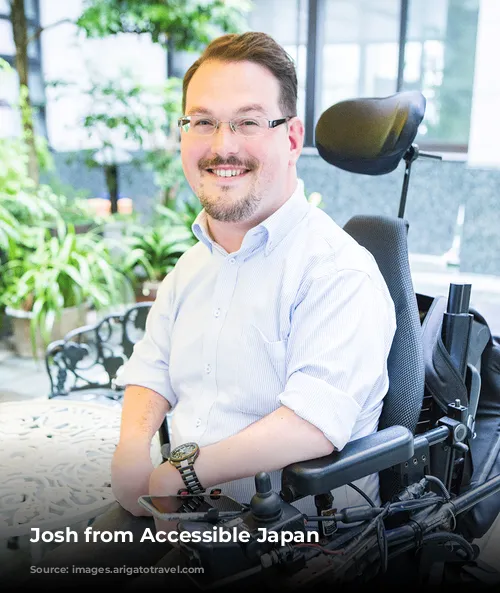
Hidden Challenges: Navigating Tokyo’s Unique Needs
What are some unexpected challenges in navigating Tokyo that people might not anticipate but can prepare for with Accessible Japan’s help?
Each person’s disability is unique, so what’s easy for a wheelchair user might be difficult for a visually impaired individual, and vice versa. As I mentioned earlier, the number of accessible hotel rooms is far lower than in many other countries, and hotels often don’t promote them well. Even if a hotel has an accessible room, they might not list it on their website.
Mobility scooters aren’t as common in Japan as they are elsewhere, so some hotels and stations may not know how to handle them. I recommend contacting your hotel early to discuss your needs and be prepared to negotiate.
Accessible Japan offers general information, but there are many unique situations that fall between the cracks. To address this, I created Tabifolk, an online community for accessible travel where people can share knowledge, solve problems, and support each other. The Japan group is very active, and I encourage anyone with questions to join and ask away! [Link to Tabifolk]
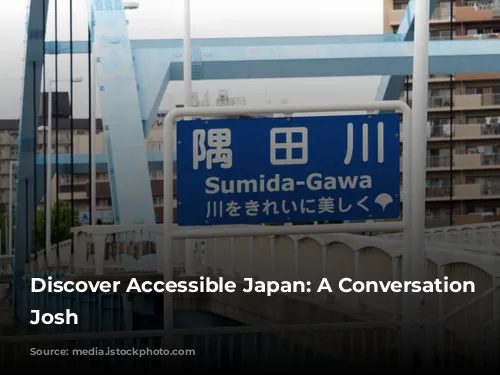
The Future of Accessible Japan: A Vision for Inclusion
What are your hopes for the future of Accessible Japan?
My dream is that one day, I can close down Accessible Japan because all hotels, attractions, transportation providers, and tours will readily share accessibility information.
Until then, I want to expand Accessible Japan to cover more of the country with greater depth. This can’t be done alone, so I’m excited to strengthen partnerships with companies like Arigato Japan so we can work together to share this incredible country with others in an inclusive way.
Thank you, Josh, for your time and valuable insights! We hope Accessible Japan’s resources will help disabled travelers create unforgettable memories in Japan.
For more information about Accessible Japan and their accessible tours, visit: [link to Accessible Japan website]
Pin this post for later!
